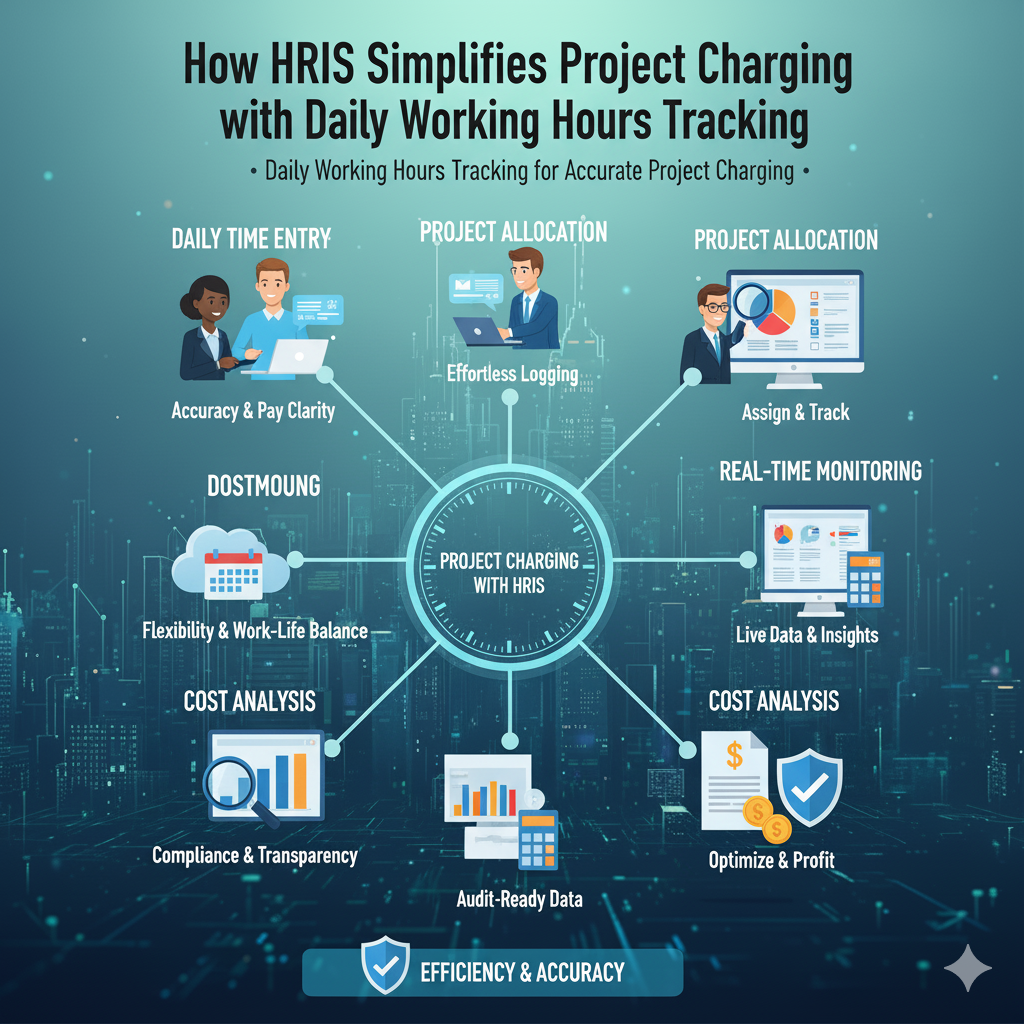Address
Kaypian, San Jose Del Monte City, Bulacan Philippines
Work Hours
Monday to Friday: 8AM - 6PM
Weekend: 10AM - 5PM
Address
Kaypian, San Jose Del Monte City, Bulacan Philippines
Work Hours
Monday to Friday: 8AM - 6PM
Weekend: 10AM - 5PM


Integrated HR. Accurate Payroll.


Integrated HR. Accurate Payroll.

Managing employee time and allocating it accurately to projects is one of the most important aspects of workforce management. Companies often struggle with manual timesheets, data discrepancies, and billing errors that affect both payroll and project profitability. This is where a Human Resource Information System (HRIS) becomes a game-changer.
By tracking daily working hours directly in HRIS, organizations can simplify project charging, reduce administrative errors, and ensure that every hour worked is accounted for in payroll and project budgets.
Project charging refers to assigning employees’ worked hours to specific projects, clients, or tasks. This ensures that time spent is correctly billed, whether it’s for internal cost tracking or external client invoicing.
When integrated into an HRIS, project charging becomes seamless because:
Accurately recording daily working hours is the foundation of effective project charging. It ensures:
✅ Fair payroll processing – Employees are compensated correctly for their efforts.
✅ Accurate client billing – Prevents undercharging or overcharging in project invoices.
✅ Better workforce planning – Managers can see how much time is dedicated to each project.
✅ Compliance assurance – Meets labor law requirements on working hours and overtime.
HRIS systems bring automation, accuracy, and transparency to timesheet management. Here’s how:
HRIS can track attendance via biometrics, mobile apps, or web logins, ensuring that daily working hours are logged without manual input.
Employees can tag their hours to specific projects within the HRIS. This helps in precise project charging, eliminating guesswork.
Managers gain instant insights into hours worked per project, making it easier to track budgets and deadlines.
Since HRIS integrates with payroll, daily working hours are directly factored into salaries, overtime pay, and allowances—ensuring fairness and accuracy.
Manual timesheet entries often lead to mistakes. HRIS automation reduces human error and eliminates discrepancies in project billing.
Implementing an HRIS for project charging brings multiple advantages:
To maximize results, organizations should:
In today’s fast-paced work environment, tracking daily working hours isn’t just about payroll—it’s about optimizing project efficiency, ensuring billing accuracy, and empowering employees with transparency.
An HRIS system simplifies project charging by automating time tracking, integrating project codes, and providing real-time insights. For businesses looking to cut costs, increase profitability, and streamline operations, HRIS-powered daily working hours tracking is no longer optional—it’s essential.